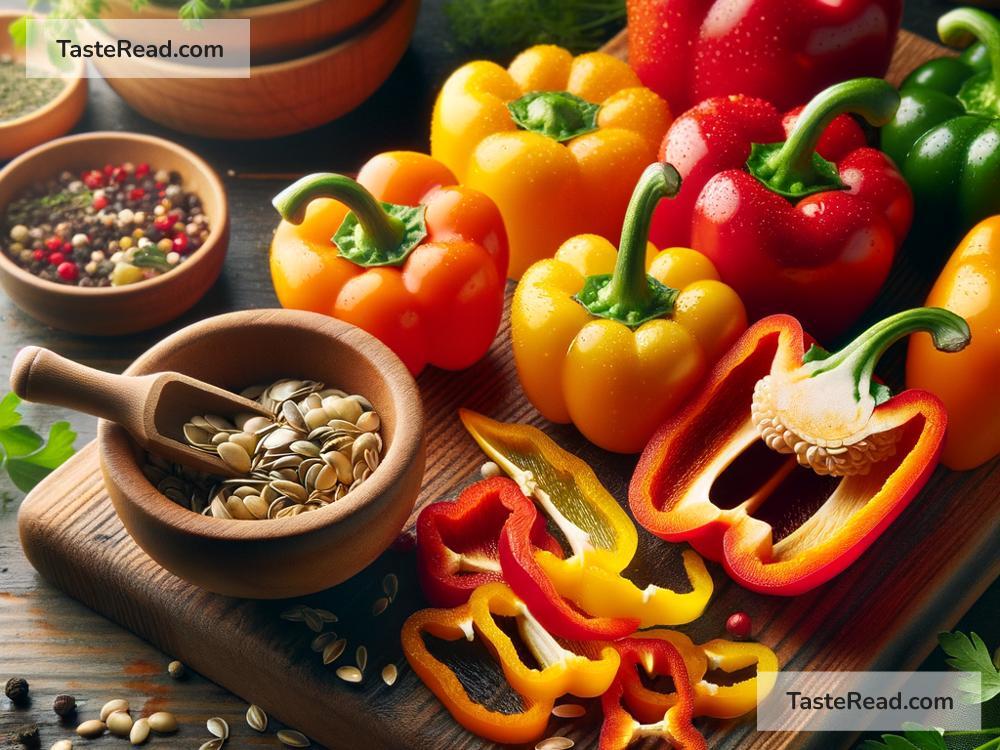The Truth About Bell Pepper Seeds and Their Uses
Bell peppers are a favorite vegetable for many people around the world. Their colorful varieties—green, red, yellow, and orange—add vibrancy and flavor to countless dishes. But what about their seeds? Most of the time, when preparing bell peppers, we throw away the seeds without giving them a second thought. Are bell pepper seeds useless, or do they have some hidden potential? In this blog post, we’ll uncover the truth about bell pepper seeds, their safety, and how you can use them.
Are Bell Pepper Seeds Edible?
Many people wonder: can you eat bell pepper seeds? The short answer is yes, they are edible! Bell pepper seeds are not toxic or harmful, so there’s no need to worry about accidentally consuming them. However, they don’t have much flavor, and their texture is slightly harder than the rest of the pepper. This is why most people prefer to remove them before cooking.
While bell pepper seeds are safe to eat, their mild bitterness may not be appealing to everyone. If you don’t mind a little crunch in your dish, you can leave them in, especially if you’re cooking a blended soup, stir-fry, or stew where their texture might not stand out.
Nutritional Value of Bell Pepper Seeds
Though bell pepper seeds don’t taste as delicious as the fleshy part of the pepper, they still offer some nutritional benefits. Just like the skin and flesh, the seeds are packed with vitamins and antioxidants. Bell peppers are known for being high in vitamin C, and even the seeds contain small amounts of this immune-boosting nutrient. The seeds also have fiber and minerals that contribute to a healthy diet.
However, it’s important to note that the majority of a bell pepper’s nutritional value lies in its flesh, not the seeds. While eating bell pepper seeds won’t harm you, they shouldn’t be your main source of nutrients. If you enjoy experimenting with food, though, they can be a fun addition to your meals.
How Can Bell Pepper Seeds Be Used?
If you’re tired of tossing bell pepper seeds into the trash or compost, you’ll be glad to know there are surprising ways to use them. Here are some creative ideas:
1. Growing New Bell Pepper Plants
The most obvious use for bell pepper seeds is planting them to grow new bell pepper plants! Bell peppers are easy to grow at home, whether in a backyard garden or pots on your balcony. Here’s how:
- Save seeds from ripe bell peppers (red, yellow, or orange ones are best since they are mature).
- Rinse the seeds and allow them to dry completely.
- Plant the seeds in soil, keep them moist, and provide plenty of sunlight.
- With proper care, the seeds can bloom into pepper plants that produce fresh, colorful bell peppers.
This is a great way to save money and enjoy homegrown vegetables. Plus, it’s an eco-friendly way to reuse seeds.
2. Adding Crunch to Dishes
If you’re making soups, stews, or sauces, you can toss bell pepper seeds in for extra texture. While they won’t alter the flavor significantly, they can add a mild crunch, especially if you roast or toast them first. Try sprinkling toasted seeds over salads or into grain dishes like rice and quinoa.
3. Making Bell Pepper Seed Powder
Bell pepper seeds can be dried and ground into a fine powder. This powder doesn’t have a strong flavor, but it can be mixed with spices and used as a seasoning or garnish. It’s a creative way to add a unique element to your spice rack!
4. Using in Arts and Crafts
Here’s a fun idea if you’re looking for non-food uses for bell pepper seeds: incorporate them into arts and crafts projects. Dry seeds can be used in mosaics, collages, or DIY seed packets for gifts.
Are There Any Risks to Using Bell Pepper Seeds?
While bell pepper seeds are safe to eat and use, there are a few minor considerations to keep in mind:
- Bitterness: As mentioned earlier, bell pepper seeds can have a slightly bitter taste. If you prefer sweeter flavors, it may be best to remove the seeds before cooking.
- Texture: Some people don’t enjoy the hard texture of the seeds in certain dishes, like salads. If that’s the case, consider grinding them or only using them in soups where they soften during cooking.
- Seed Viability: If you plan to grow bell peppers from seeds, make sure you use seeds from fully matured peppers. Seeds from unripe green peppers are less likely to sprout and grow successfully.
Conclusion: Don’t Underestimate Bell Pepper Seeds!
Bell pepper seeds often get overlooked, but they’re far from useless. Whether you choose to eat them, grow new plants, or use them in creative projects, these tiny seeds have more potential than most people realize. They are edible, nutritious, and versatile, making them a great addition to a sustainable lifestyle. So, next time you’re chopping up bell peppers, think twice before tossing those seeds away—you might just find a surprising way to make use of them!


